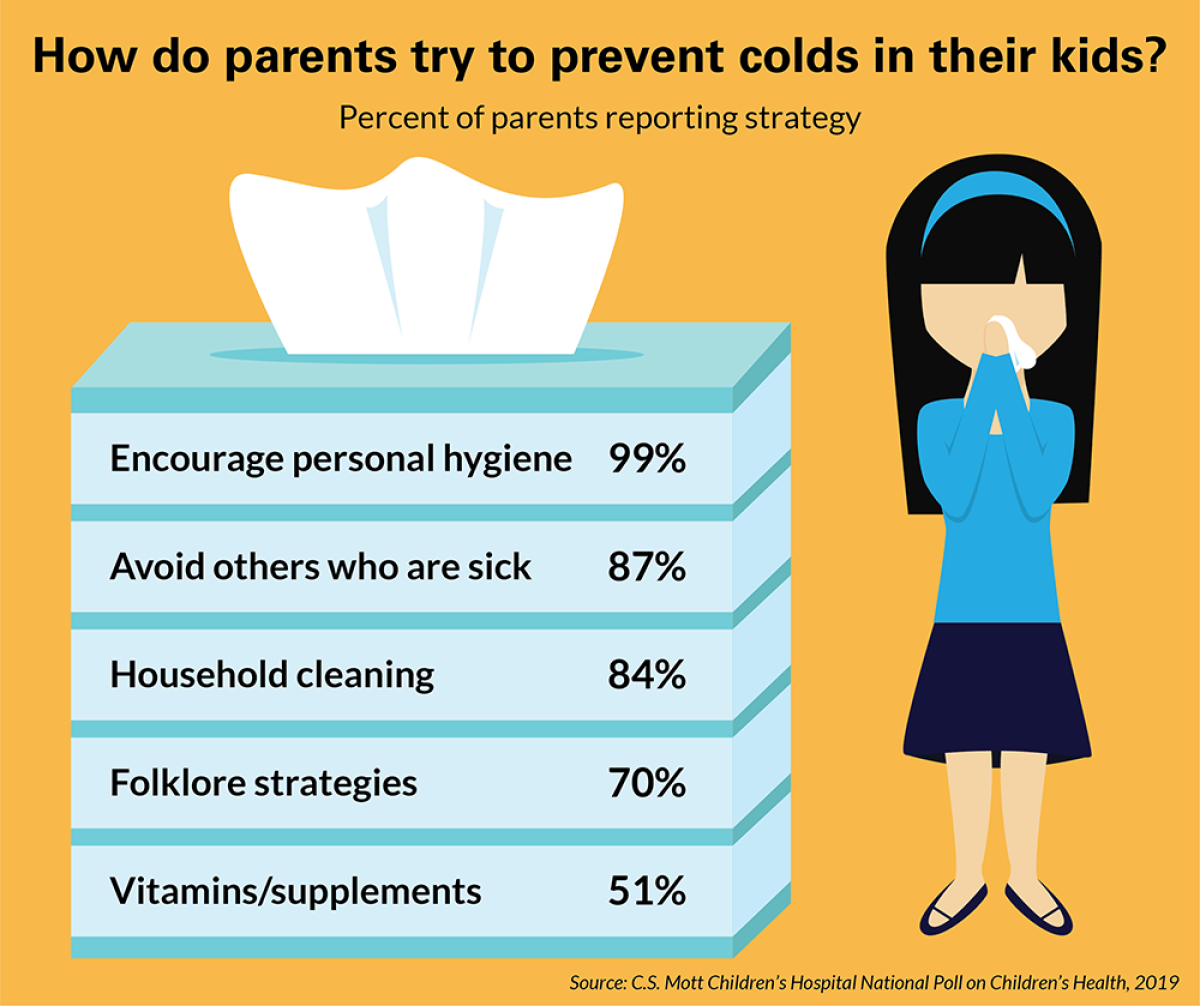As many as 70 percent of parents believe myths with no scientific basis—like not getting your hair wet—can help stave off colds, according to a survey.
And more than half of parents dose their children with vitamins and supplements in the misguided hope they will stop them from catching a bug, the C.S. Mott Children's Hospital National Poll on Children's Health found.
Read more: Colorado child dies from flu after not getting second shot: 'it's a tragedy'
Colds spread when viruses travel in cough and sneeze droplets, and enter the mouth, eyes or nose of a new host. The bugs can also be contained in a person's stool.
The average child catches between three to six colds per year, the authors of the research stated. "As a result, it can seem to parents like their child is almost always sick during the cold season," they said.
In October 2018, a nationally representative sample of 2,007 parents above the age of 18 were asked how they tried to prevent their children from getting sick in the past year.
The researchers at the University of Michigan found that of the total, 70 percent of parents believed what were dubbed "folklore strategies." Some 52 percent incorrectly warned their child that going outside with wet hair would cause them to catch a cold. Just below half said being indoors would prevent them from getting sick, while 23 percent gave the contrary advice to spend more time outdoors. Researchers said such strategies are a hangover from a time when we did not understand what triggered infectious diseases.
Parents also fed their children products carrying claims they would boost their child's immune system, as well as vitamin C, zinc, or the herb Echinacea. But the researchers stressed that "despite being heavily advertised and used commonly, none have been shown to have any definitive effect on cold prevention."
Supplements and vitamins are not regulated by the FDA and so "the effectiveness of these products does not need to be proven for them to be sold," they wrote.
Positively, the research also revealed 99 percent of parents stuck to the science-based advice to maintain good personal hygiene to prevent a cold: for instance by washing hands, not sharing food and drink when sick, and covering the face when sneezing or coughing.
A further 87 percent of parents correctly told their children to avoid sick individuals. That could be by telling ill loved ones not to show their child affection or canceling a playdate. Other advisable methods for beating colds included keeping household surfaces clean, including toys.
Dr. Gary Freed, co-director of the research and a pediatrician at C.S. Mott Children's Hospital, told Newsweek this is the first study to investigate how parents prevent colds in children in a nationally representative sample.
However, he said the results were limited because the study couldn't determine how often parents tried folk remedies or vitamins and supplements but "just that they have done so in the past."
"The issue here is that parents are using ineffective non-prescription vitamins (e.g., Vitamin C) and other over the counter products advertised to 'boost the immune system'," Freed continued.
"Parents should be skeptical of any over the counter product that claims to prevent colds because none have been proven to do so," stressed Freed. "Companies who sell over the counter supplements can make claims not supported by evidence. Parents should be skeptical of these marketing efforts."

Uncommon Knowledge
Newsweek is committed to challenging conventional wisdom and finding connections in the search for common ground.
Newsweek is committed to challenging conventional wisdom and finding connections in the search for common ground.
About the writer
Kashmira Gander is Deputy Science Editor at Newsweek. Her interests include health, gender, LGBTQIA+ issues, human rights, subcultures, music, and lifestyle. Her ... Read more
To read how Newsweek uses AI as a newsroom tool, Click here.








